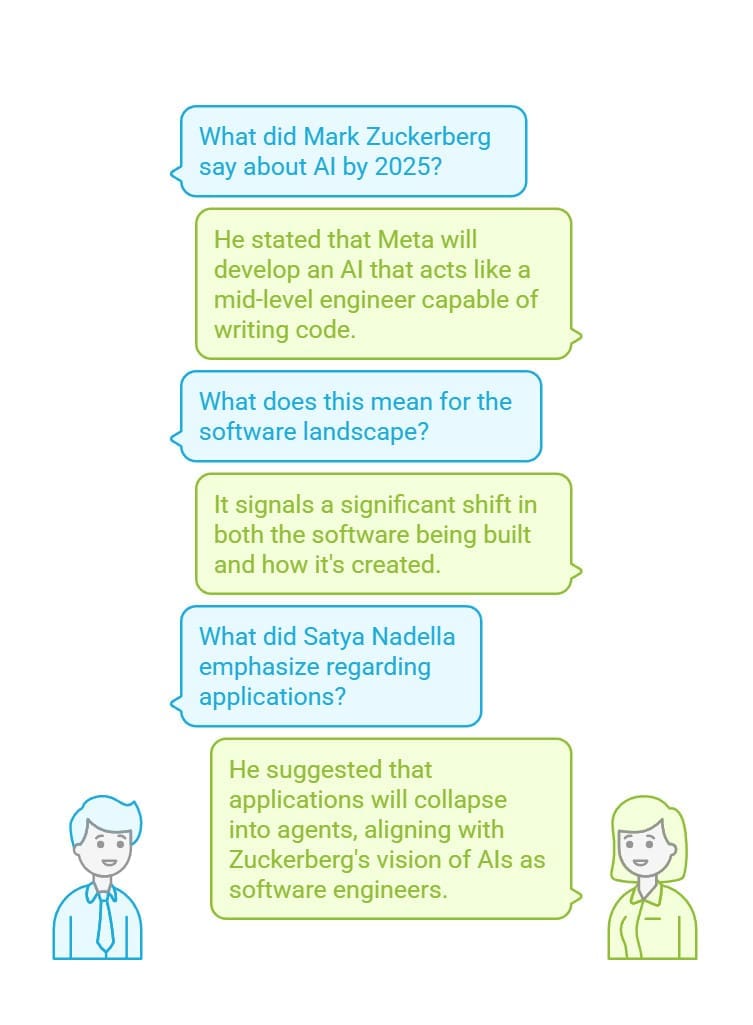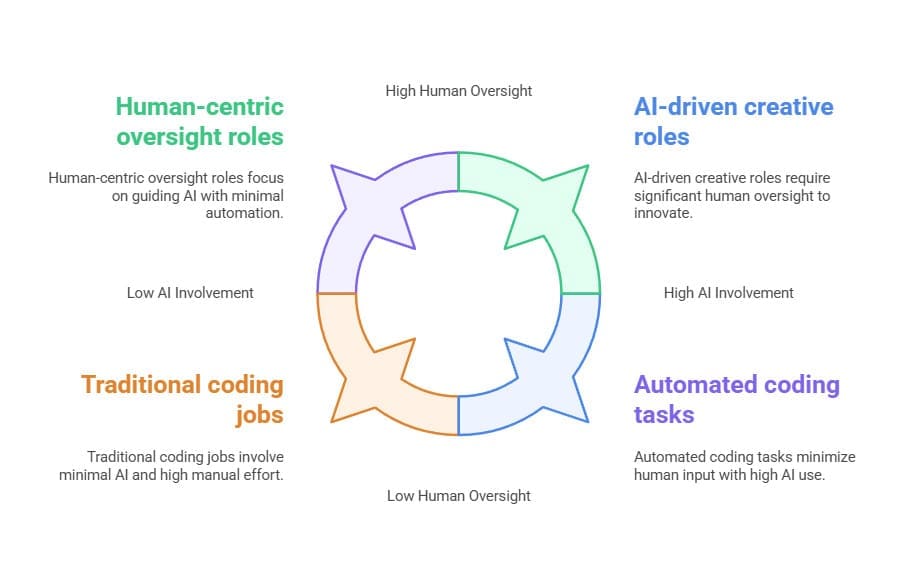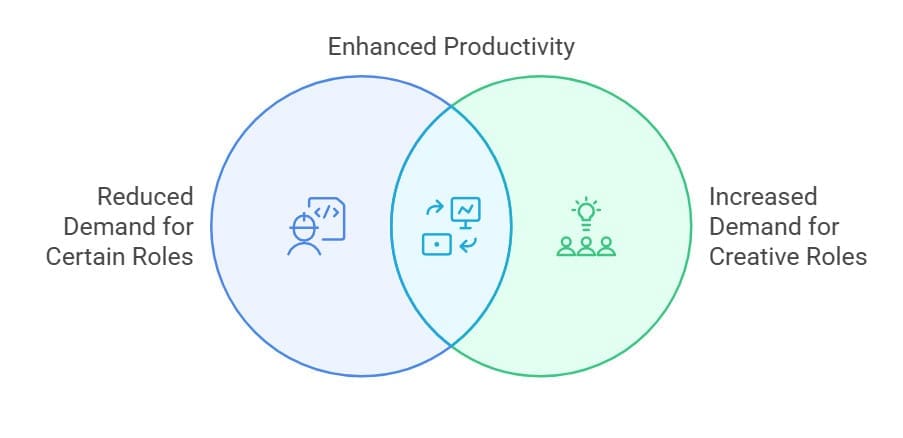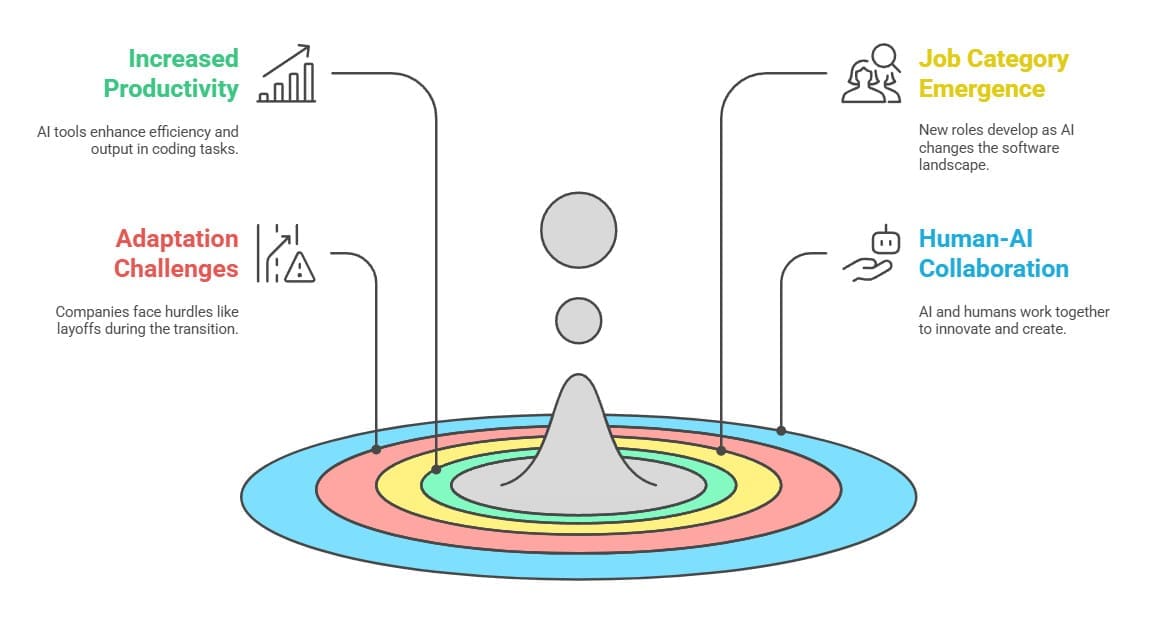Zuckerberg’s Vision: AI and the Future of Software Development

The Future of AI in Software Development
In a bold statement, Mark Zuckerberg shared that by 2025, Meta will have developed an AI that acts like a mid-level engineer capable of writing code. This revelation signals a significant shift in the software landscape, not just in the software being built but in how it’s created. As Zuckerberg noted, the entire process is evolving right before our eyes.
Recently, Satya Nadella emphasized a similar sentiment, suggesting that applications will collapse into agents. This aligns with Zuckerberg’s vision that AIs will increasingly take on the role of software engineers, writing code to meet real-time demands and requests. With Meta’s vast resources, both financial and technological, they are poised to lead this charge.
The Future of Code
As we look ahead to 2025 and beyond, the question arises: what will the code written by AI look like? Will it resemble the code we know today, or will it be something entirely different? Personally, I believe it will be the latter. In the near term, we might still rely on traditional databases for our foundational truths, but AI agents will dynamically generate code as needed. This means that if you have a specific task, the AI will create tools and user interfaces on the fly, fundamentally altering the concept of applications as we know them.
Augmentation, Not Replacement
During a recent interview with Joe Rogan, Zuckerberg discussed how AI will not replace human engineers but augment their capabilities. He envisions a future where humans are empowered to be more creative and productive, freed from mundane coding tasks. In this new reality, while AI might handle the bulk of coding, human oversight will still be crucial. This raises important questions: if AI is writing code, who reviews it? Will there be a new breed of AI tasked with code review?
The shift to AI-driven coding will require a robust system to manage this new paradigm. Instead of viewing AI as a threat to jobs, Zuckerberg believes it will create new, creative roles. Drawing parallels to historical shifts in labor, he pointed out that just as the industrial revolution reduced the need for farmers, AI will decrease the number of people needed for routine coding tasks but will open up avenues for more engaging, innovative work.

AI Augmentation in Coding
Productivity Boosts and Job Evolution
Interestingly, a recent article highlighted Salesforce’s decision to halt hiring software engineers due to a reported 30% productivity boost from AI technology. This example illustrates the dual nature of AI’s impact: while it may reduce the need for certain roles, it simultaneously enhances productivity and creates new opportunities in other areas. As companies leverage AI, the demand for creative roles that can harness this technology will likely surge.
As Zuckerberg noted, history shows that as technology advances and becomes more efficient, the demand for it tends to increase rather than decrease. This phenomenon suggests that as AI becomes an integral part of software development, the capacity for engineers will expand, allowing them to produce significantly more work.

The Dual Impact of AI on Employment
The Path Ahead
While the future looks promising, we must acknowledge that the transition will not be smooth. There will be bumps along the road, including layoffs and a high-friction period as companies adapt to this new reality. However, the potential for increased productivity and the emergence of new job categories cannot be overlooked. The landscape is changing, and those who adapt will thrive.
As we embrace this shift, I encourage everyone to explore AI coding tools like Bolt.new and Windsurf. The future is bright for those willing to engage with these technologies and harness their power for innovation and entrepreneurship.

AI Integration in Software Development
In conclusion, Zuckerberg’s vision for an AI-driven future in software development opens up exciting possibilities. In 2025, we may witness a transformation that not only redefines coding but also elevates human creativity to new heights. So, let’s get ready for a future where AI and humans collaborate to build the software of tomorrow.
